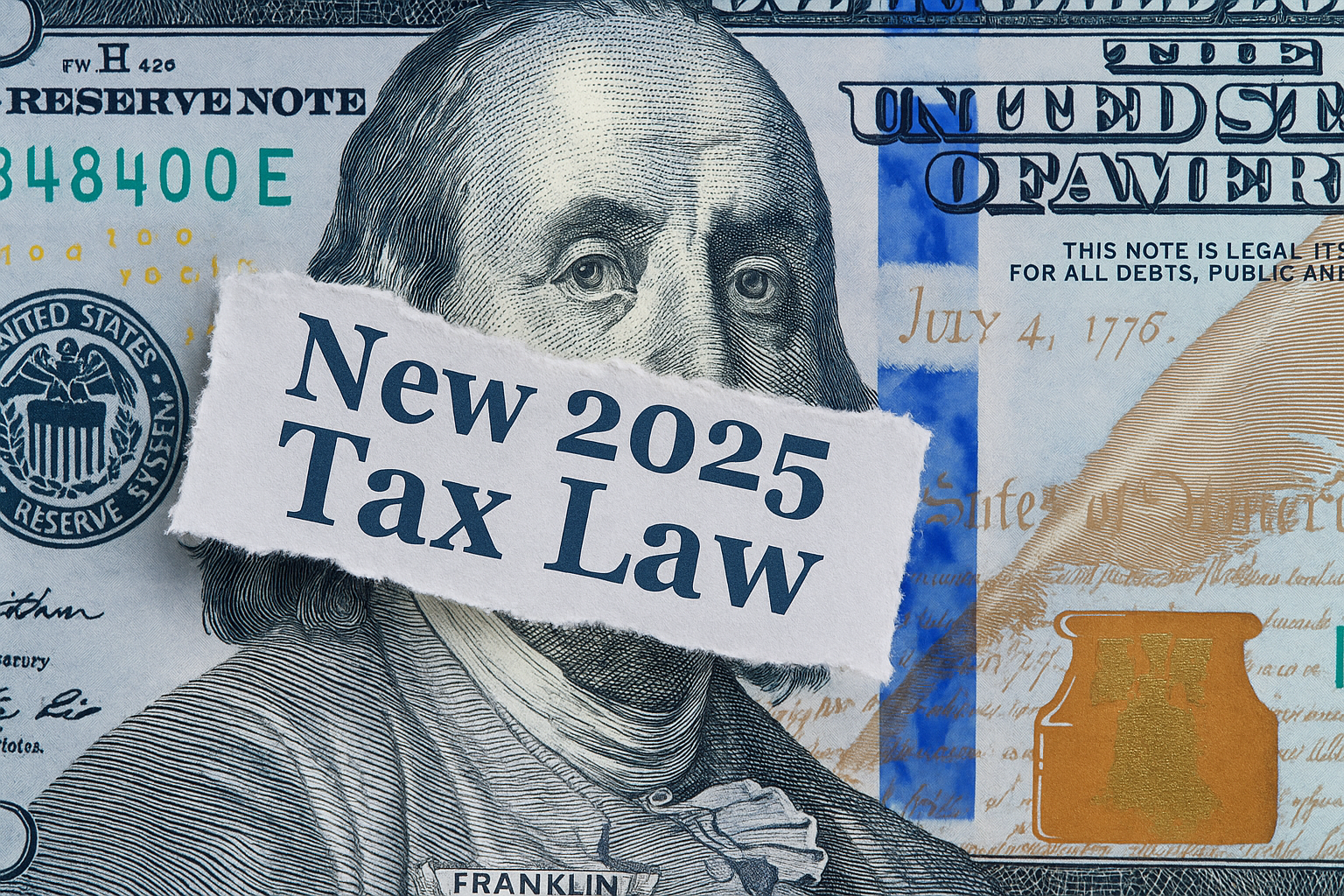What Individual Investors Should Know About the One Big Beautiful Bill Act (OBBBA)

What Individual Investors Should Know About the One Big Beautiful Bill Act (OBBBA)
Signed into law on July 4, 2025, the One Big Beautiful Bill Act (OBBBA) introduces sweeping tax reforms, new deductions, and key policy shifts that could significantly impact how individuals and families plan, save, and file taxes. At McNeill Capital, we’re breaking down what matters most to you and your household finances.
1. Permanent Tax Cuts and a Bigger Standard Deduction
The individual tax cuts introduced in the 2017 Tax Cuts and Jobs Act were previously set to expire after 2025. OBBBA makes those cuts permanent. In addition, the standard deduction increases to roughly $15,750 for single filers and $31,500 for married couples, indexed for inflation. This may reduce taxable income for many households.
2. Expanded SALT Deduction and Targeted Worker Relief
For taxpayers earning under $500,000, the State and Local Tax (SALT) deduction cap rises from $10,000 to $40,000. That’s a significant win for residents in high-tax states.
OBBBA also introduces temporary income exclusions through 2028, aimed at supporting middle-income workers in industries where compensation often includes variable or non-salaried income. These include:
- Tipped income exclusion: Up to $25,000 of income from tips can be excluded from taxable income. This phases out for taxpayers with modified adjusted gross income (MAGI) above $200,000 (single) or $400,000 (married filing jointly).
- Overtime pay exclusion: Up to $12,500 of annual overtime earnings can be excluded. This phases out at MAGI thresholds of $150,000 (single) and $300,000 (married filing jointly).
- Auto loan interest deduction: Taxpayers can deduct up to $10,000 in interest on loans used to purchase U.S.-assembled vehicles. This deduction is available to those with MAGI under $250,000 (single) or $500,000 (married).
These targeted deductions offer meaningful relief to service workers, laborers, and families earning variable income—but careful tax planning is required to ensure eligibility.
3. New “Trump Accounts” and Enhanced Child Tax Credit
OBBBA introduces a new savings vehicle: “Trump accounts” — tax-deferred accounts that receive a one-time $1,000 federal deposit for each qualifying child born between 2025 and 2028. The Child Tax Credit also increases from $2,000 to $2,200, and up to $5,000 in additional credit is available for adoptive families.
4. Retirement Planning Changes
OBBBA introduces several changes that directly affect retirement planning for individuals:
- Increased RMD Age: The Required Minimum Distribution (RMD) age increases from 73 to 75, giving retirees more flexibility in planning withdrawals and managing taxable income in early retirement.
- Lower Penalties for Missed RMDs: The penalty for failing to take an RMD is reduced from 50% to 10%, easing the burden on retirees who make administrative errors or experience delays. This penalty can be further reduced to 10% if the missed RMD is taken, and a corrected tax return is filed within a specific time frame (generally within two years).
- Inherited IRAs: The 10-year distribution rule for non-spouse beneficiaries remains in effect, but OBBBA provides more flexibility by allowing limited exceptions for chronically ill or disabled beneficiaries. The IRS is also expected to issue further guidance on compliance timelines and penalties. Crucially, beginning in 2025, many non-spouse beneficiaries will also be required to take annual RMDs during the 10 year period. More guidance from the IRS on this matter is expected shortly.
- Qualified Charitable Distributions (QCDs): The annual QCD limit increases from $100,000 to $108,000 (indexed for inflation afterwards). This allows retirees age 70½ and older to donate more from IRAs directly to qualified charities without increasing taxable income, which can be particularly useful for managing Medicare premiums and Social Security taxation.
5. Estate and Gift Tax Relief
High-net-worth families gain meaningful flexibility from a permanent increase in the federal estate and gift tax exemption: $15 million per individual or $30 million per couple (indexed for inflation), starting in 2026. This avoids the steep drop previously scheduled after 2025.
6. What It Means for Individual Investors and Families
- Taxpayers in high-SALT states can see direct benefits.
- Middle-income families and service-sector workers may qualify for meaningful tax exclusions.
- Families gain improved savings tools and child-focused tax credits.
- Retirement savers benefit from increased planning flexibility and reduced penalties.
- Estate planning opportunities are expanded through higher exemptions.
At McNeill Capital, we help individuals and families navigate legislation like OBBBA with clarity and strategic insight. Whether you’re evaluating your tax planning strategy, planning for a growing family, adjusting your retirement income, or aligning your charitable giving, we’re here to help.
Let’s talk. Reach out today to understand how the OBBBA could affect your financial future.
This information does not constitute investment advice and is not an offer to buy or sell a security. The material is provided for general information and educational purposes and is based on information provided to us by sources deemed to be reliable. All expressions of opinion are subject to change without notice in reaction to shifting market conditions. Examples provided are for illustrative purposes only and not intended to be reflective of results you can expect to achieve. Past performance is no guarantee of future results and asset values will fluctuate with changing market conditions. There is no guarantee that the views and opinions expressed in this document will come to pass. Investing in the market involves gains and losses and may not be suitable for all investors. All investments are uninsured and can lose value.
McNeill Capital, LLC (MC) is a registered investment advisor. Reference to registration does not imply any particular level of skill. MC does not provide tax or legal advice. MC is not an attorney. Estate planning can involve a complex web of tax rules and regulations. Consider consulting a tax or legal professional about your particular circumstances before implementing any tax or legal strategy. The information provided here is of a general nature and is not intended to address the specific circumstances of any individual or entity. In specific circumstances, the services of a professional should be sought.
©2025 McNeill Capital, LLC





